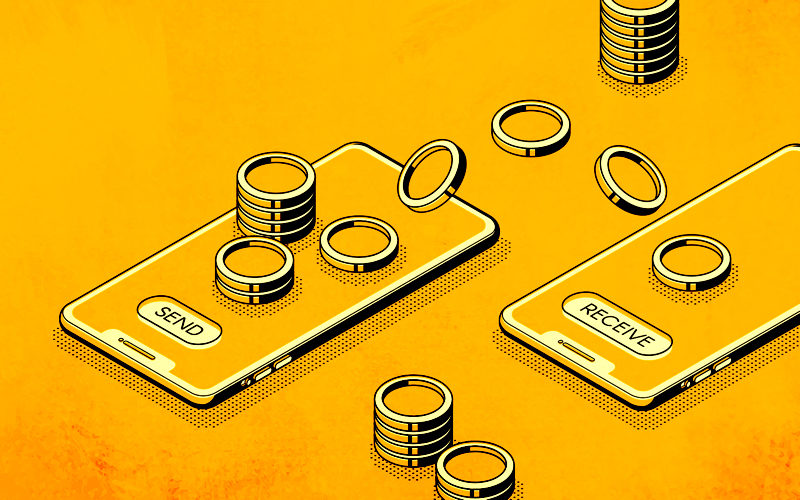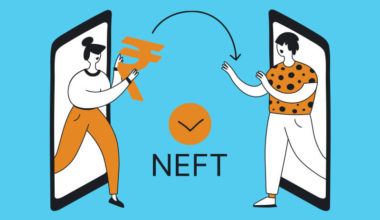Money transfer is a crucial part of our modern financial system, allowing people and businesses to send money to each other easily and securely. From mobile payment applications to online banking and the Unified Payments Interface (UPI) in India, there are a multitude of options available to cater to diverse needs. This article aims to provide a comprehensive overview of money transfer methods.
Table of Contents Show
In this article, we will cover everything you need to know about money transfer, including how it has evolved over time, why digital payment systems are becoming more popular, and why many people now prefer to transfer money electronically.
Online Money Transfer Methods
The various options through which users can make money transfer online are listed below-
UPI
Unified Payment Interface, or UPI is the most recent method of transferring money from one bank to another online. Introduced by NPCI (National Payments Corporation of India) and RBI (Reserve Bank of India), UPI money transfer eliminates the need for complex bank account details of the receiver to initiate money transfers. UPI ID, which acts as the virtual payment address and UPI PIN the security password for confirming the transaction are the only things required to transfer money through UPI money transfer. UPI ID and UPI PIN should be created at the time of registration on the mobile payments application. After creating your UPI account, the money transfer process becomes possible with a few clicks.
Digital Wallet
Digital wallets are another money transfer medium to store, manage, and use your digital assets like money or loyalty points. It’s a secure and convenient way to carry out transactions without carrying physical cash or cards. With a digital wallet, you can make online payments, send money to others, and even make contactless payments at stores using your smartphone or other devices. Your digital wallet is usually linked to your bank account or cards, making it easy to handle your finances.
NEFT
National Electronic Funds Transfer (NEFT) is a system for electronically transferring money from one bank account to another in India. It is regulated by the Reserve Bank of India (RBI) and is offered by most Indian banks through internet and mobile banking. NEFT allows for the transfer of money without any additional transaction costs and operates by processing transactions in batches at specified times throughout the day.
IMPS
Immediate Payment Service (IMPS) is a system for quickly transferring funds electronically from one bank account to another. It is available through internet and mobile banking platforms and allows for the immediate transfer of money, with transaction fees set by the banks. IMPS is useful for situations where funds need to be transferred quickly.
RTGS
RTGS, which stands for Real-time Gross Settlement, enables instant transfer of funds from one bank account to another without any delays. Unlike NEFT, RTGS does not follow a batch processing system. This means that each transaction is processed individually, ensuring real-time settlement of funds. RTGS is the preferred method for transferring amounts equal to or exceeding Rs. 2 lakh in real-time. This fast and efficient process makes money transfers through RTGS easier and quicker for users.
Advantages of Online Money Transfer
Online money transfer offers multiple advantages. Some of them are listed below-
- One of the major advantages of online money transfer is that it makes cash readily available unlike banks which take around 2-3 working days to transfer money from one account to another
- Banks/financial institutions that offer the facility of online money transfer allow both, international and domestic transactions. While domestic transfers are mostly free of cost, international transfers are chargeable
- Online money transfer is one of the fastest methods of transferring money. Domestic money transfer takes only a day to complete, while international money transfer takes a day or two
- In comparison to other methods, online money transfer has the simplest and easiest process to perform and complete
Points to be Considered for Online Money Transfer
- To initiate online money transfer, you must download a mobile payment application like Paytm and create your account on the same
- To begin the online transaction, you need the beneficiary’s details such as his/her bank account number, bank’s branch, IFSC, etc.
- Certain banks levy an online transaction fee, which must be borne by the sender
- It is important to keep all your online banking details private to yourself. While online banking has helped users in the long run, there is also a risk of fraud. Hence, you must be careful with your passwords and bank account details










